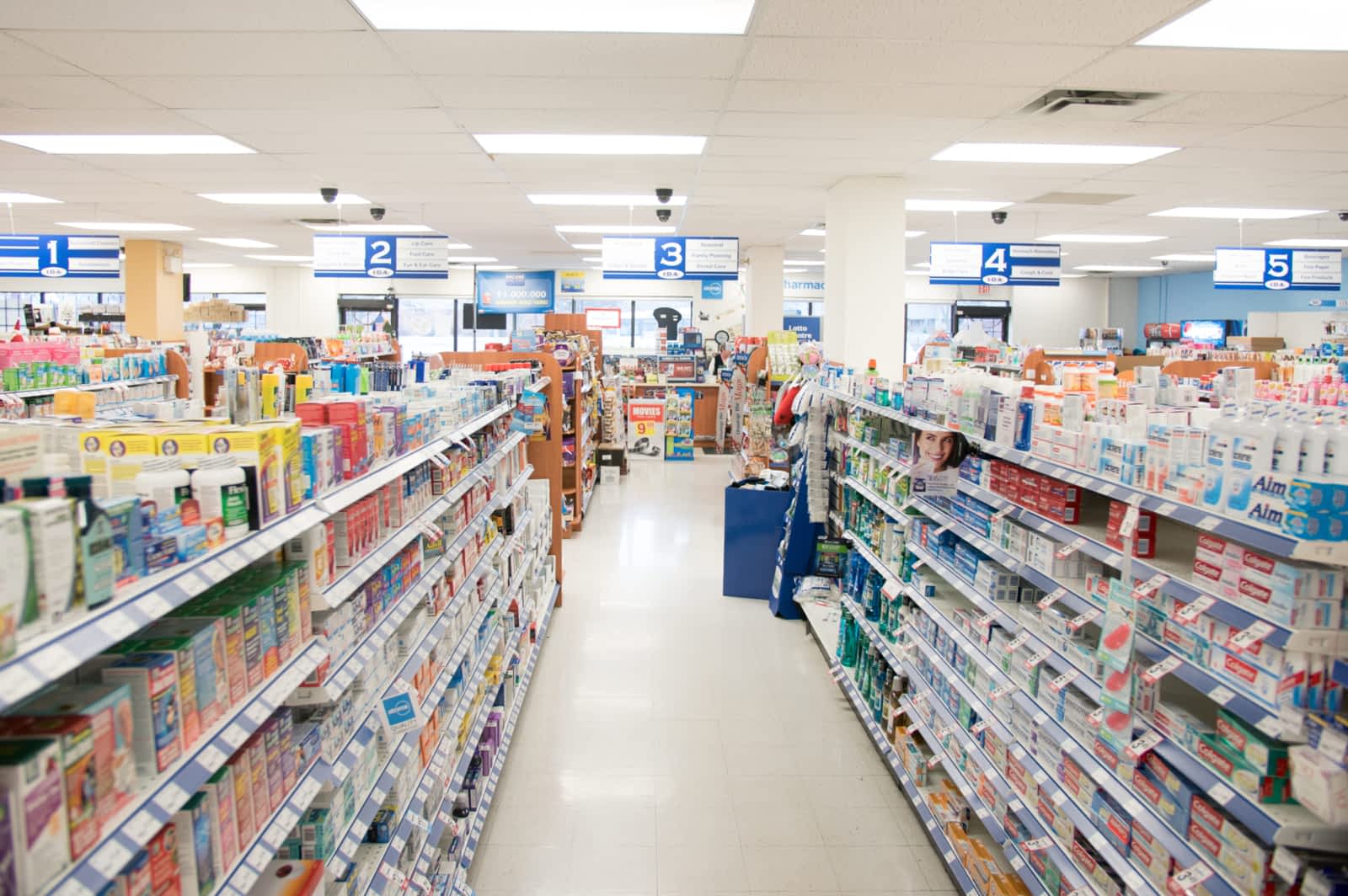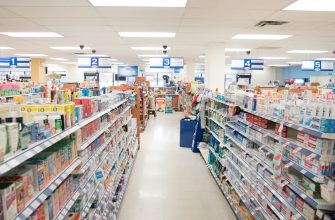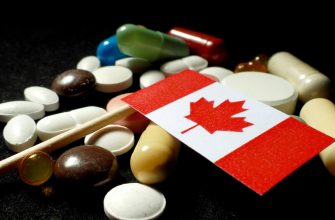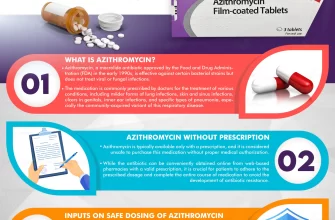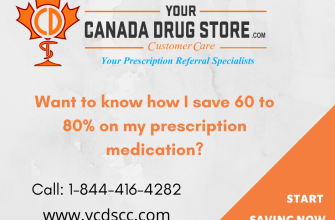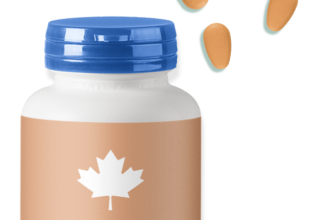Need reliable access to prescription drugs at competitive prices? Consider Canadian pharmacies. Many offer significant savings compared to US prices, often 40-70% less, on brand-name and generic medications. This difference stems from Canada’s drug pricing regulations and government healthcare system.
Before choosing a pharmacy, verify its legitimacy. Look for pharmacies licensed by Health Canada and accredited by recognized organizations like the Canadian International Pharmacy Association (CIPA). Check online reviews and independent pharmacy rating sites to gauge customer experiences. Focus on feedback regarding order fulfillment speed, customer service responsiveness, and drug authenticity. A reputable Canadian pharmacy will readily provide licensing and accreditation details.
Remember to consult your doctor before ordering medications online, even from a Canadian pharmacy. They can advise on the appropriateness of the medication and potential interactions with other drugs you may be taking. They can also assist in obtaining necessary prescriptions. Confirm your prescription’s validity before placing your order to ensure a smooth and legal transaction.
Saving money on medication shouldn’t compromise safety. Thorough research and due diligence will help you locate a trustworthy Canadian pharmacy and navigate this process confidently. Prioritize a pharmacy with a strong reputation for secure shipping and handling procedures to guarantee your medication arrives intact and promptly.
- Canada Pharmacy: A Comprehensive Guide
- Finding Reputable Canadian Online Pharmacies
- Checking for Legitimate Operations
- Ensuring Secure Transactions
- Verifying Legitimate Canadian Pharmacy Licenses
- Understanding Canadian Prescription Drug Regulations
- Licensed Pharmacies
- Prescription Requirements
- Importation Rules
- Safe Online Practices
- Reporting Concerns
- Provincial Variations
- Comparing Prices and Medications Offered
- Ensuring Secure Online Transactions and Privacy
- Shipping Times and Customs Procedures
- Potential Risks and Safeguards When Ordering Online
- Protecting Your Personal Information
- Ensuring Medication Authenticity
- Addressing Common Concerns and Misconceptions
Canada Pharmacy: A Comprehensive Guide
Always verify a pharmacy’s legitimacy through Health Canada’s website before ordering. This single step protects you from counterfeit medications.
Prescription requirements vary. Canadian pharmacies generally require a valid prescription from a licensed Canadian physician or a prescription transferred from your doctor in your home country. Confirm their specific requirements before placing your order.
- Check for Licensing: Look for a registered Canadian business license number, easily verifiable through government databases. This isn’t a guarantee of quality but a necessary first step.
- Secure Payment Methods: Legitimate pharmacies use secure payment gateways (e.g., SSL encryption). Beware of unusually low prices or those accepting only wire transfers.
- Customer Reviews: Read independent reviews from multiple sources. Don’t solely rely on reviews found on the pharmacy’s website.
- Contact Information: Verify their contact details – a physical address, phone number, and email address should be easily accessible and functional.
- Privacy Policy: Review their privacy policy to understand how your personal and health information is handled.
Shipping times can vary based on location and shipping method; expect a delay compared to local pharmacies. Always factor in potential customs delays if ordering internationally.
- Compare Prices: Different pharmacies offer different prices. Compare several reputable pharmacies before committing to an order.
- Read the Fine Print: Carefully review all terms and conditions before completing your purchase, paying close attention to return policies and refund options.
- Track Your Order: Most pharmacies offer order tracking. Utilize this to monitor the shipment’s progress.
While Canadian pharmacies can offer cost savings, potential risks exist. Always prioritize safety and legality. A small price difference is not worth compromising your health or security. If something feels wrong, it likely is; choose another pharmacy.
Finding Reputable Canadian Online Pharmacies
Verify the pharmacy’s license with the College of Pharmacists of your province. Each province maintains a registry; check it directly for legitimacy. This simple step significantly reduces risk.
Checking for Legitimate Operations
Inspect the website thoroughly. Look for a physical address, contact information (including phone number and email), and a clearly stated privacy policy. A lack of these details should raise immediate concerns. Also, ensure the site uses HTTPS encryption (look for the padlock icon in your browser’s address bar).
Read online reviews from multiple sources, not just the pharmacy’s own website. Sites like Trustpilot or other review platforms can offer valuable insights from past customers. Pay close attention to recurring themes in negative reviews; they might highlight systemic issues.
Beware of pharmacies offering suspiciously low prices. Unreasonably cheap medication may be counterfeit or of inferior quality. Price should not be the sole determining factor; prioritize safety and authenticity.
Ensuring Secure Transactions
Confirm that the pharmacy uses secure payment gateways like PayPal or Stripe. These platforms provide a layer of protection against fraudulent transactions. Avoid pharmacies that only accept wire transfers or other less secure payment methods.
Check the pharmacy’s return policy. A reputable pharmacy will usually have a clear and fair return policy in case you receive damaged or incorrect medication. This demonstrates a commitment to customer satisfaction and accountability.
If you have doubts, consult your doctor or pharmacist. They can offer valuable advice and help you identify trustworthy sources for your medications. Remember, your health is paramount.
Verifying Legitimate Canadian Pharmacy Licenses
Check the Canadian International Pharmacy Association (CIPA) website. CIPA verifies and lists legitimate online pharmacies operating in Canada. Look for the CIPA logo prominently displayed on the pharmacy’s website.
Visit the College of Pharmacists of your province or territory. Each province and territory has a regulatory body that licenses pharmacists and pharmacies. Their websites provide search tools to confirm a pharmacy’s license status and verify pharmacist registration.
Inspect the pharmacy’s website thoroughly. Legitimate Canadian pharmacies usually include their physical address, contact information (phone number, email), and a clear description of their operations. Lack of this information is a major red flag.
Examine the pharmacy’s security measures. Look for indicators like HTTPS encryption (indicated by a padlock icon in the browser address bar) and privacy policies explaining how they handle customer data. Secure websites protect personal and financial information.
| Province/Territory | Regulatory Body Website (Example) |
|---|---|
| Ontario | www.example.com/ontario |
| British Columbia | www.example.com/bc |
| Alberta | www.example.com/alberta |
Contact the pharmacy directly. Ask questions about their services and licensing. A legitimate pharmacy will readily provide answers and details. Be wary of vague or evasive responses.
Report suspected illegal pharmacies. If you encounter a pharmacy that you believe is operating illegally, report it to the relevant provincial or territorial regulatory body.
Understanding Canadian Prescription Drug Regulations
Always obtain prescriptions from licensed Canadian doctors. This ensures your medications are appropriately prescribed for your specific health needs and medical history. Ignoring this step risks obtaining counterfeit or unsafe drugs.
Licensed Pharmacies
Only use pharmacies licensed by a provincial or territorial regulatory body. Verify this licensing through the relevant regulatory authority’s website before ordering. Look for clear contact information and physical addresses on the pharmacy’s website. Avoid pharmacies lacking this transparency.
Prescription Requirements
Canadian law requires a valid prescription from a licensed healthcare professional before dispensing prescription drugs. The prescription must contain specific details, including the patient’s information, medication details, and the prescribing doctor’s license number. Pharmacies will verify this information. Never attempt to circumvent this process.
Importation Rules
Importing prescription drugs into Canada from other countries is strictly regulated. Personal imports for short-term use are generally permissible with a valid prescription, but significant quantities may require additional permits. Check Health Canada’s website for specific guidelines and limitations.
Safe Online Practices
When ordering online, scrutinize the pharmacy’s security measures. Look for websites using SSL encryption (indicated by “https” in the address bar). Ensure they have a privacy policy that protects your personal information. Avoid pharmacies with unusually low prices, as this often indicates counterfeit products. Report suspicious online pharmacies to the authorities.
Reporting Concerns
Report any concerns about potentially unsafe or counterfeit medications to Health Canada directly. This proactive step contributes to public safety and helps enforce regulations. Your vigilance helps protect others.
Provincial Variations
Provincial and territorial regulations may slightly vary. Contact your local health authority for jurisdiction-specific details. This ensures compliance with your region’s laws.
Comparing Prices and Medications Offered
Start your search by using reputable online pharmacy comparison websites. These tools allow you to input the medication you need and see prices from various Canadian pharmacies instantly. Pay close attention to shipping costs, as these can significantly alter the final price.
Consider the medication’s strength and quantity. A higher dose or larger package may offer a lower cost per unit. Compare prices per pill or milligram to ensure a fair comparison.
- Tip: Check if the pharmacy offers discounts for larger orders or repeat prescriptions.
Always verify the pharmacy’s legitimacy. Look for licensing information readily available on their website, confirming their registration with the proper authorities in Canada. A reputable pharmacy will transparently display this information.
- Check for accreditation: Look for seals from organizations like the Canadian International Pharmacy Association (CIPA).
- Read reviews: Customer reviews provide valuable insights into a pharmacy’s service quality and reliability. Consider both positive and negative feedback.
Compare the medications offered. Ensure the pharmacy stocks the specific brand and formulation you require. Don’t assume all pharmacies carry the same medications in identical forms.
- Verify the medication’s ingredients are identical.
- Confirm expiration dates to avoid purchasing outdated medications.
Before making a purchase, carefully review the pharmacy’s return policy and customer support options. Knowing their processes for handling potential issues can offer peace of mind.
Remember, price should not be the sole deciding factor. Prioritize a licensed and reputable pharmacy that provides excellent customer service and transparent practices. Your health is paramount.
Ensuring Secure Online Transactions and Privacy
Verify the pharmacy’s license and accreditation with your local regulatory body. This ensures they operate legally and maintain standards.
Look for a secure website. Check for “https” in the URL and a padlock icon in your browser’s address bar. This indicates data encryption.
Use strong, unique passwords. Avoid using the same password for multiple accounts. A password manager can help you create and store secure passwords.
Read the pharmacy’s privacy policy carefully. Understand how they collect, use, and protect your personal information. Avoid pharmacies with vague or insufficient policies.
Pay with secure payment methods. Credit cards and reputable online payment platforms offer better buyer protection than other methods.
Be cautious of unsolicited emails or phone calls. Legitimate pharmacies rarely solicit business aggressively.
Contact customer support if you have concerns. A responsive and helpful customer service team is a good sign of a reliable pharmacy.
| Security Feature | Verification Method |
|---|---|
| HTTPS | Check the URL and look for the padlock icon |
| Privacy Policy | Read the policy thoroughly and look for clear details |
| Payment Methods | Choose well-known and secure options |
| Customer Support | Contact the pharmacy directly with any questions |
| Licenses and Accreditations | Verify with your local regulatory body |
Report suspicious activity to the appropriate authorities. This helps protect yourself and other customers.
Shipping Times and Customs Procedures
Expect delivery within 7-14 business days for most orders shipped within Canada. International shipping takes longer; allow 14-21 business days, but potential delays due to customs processing should be anticipated.
Customs clearance: Canadian pharmacies typically handle customs declarations. You might receive tracking updates showing customs processing. This usually takes a few extra days. For international orders, be aware that customs duties and taxes are the recipient’s responsibility. These vary depending on your country’s regulations and the value of the goods. Check your local customs agency’s website for details.
Tracking your order: You’ll receive a tracking number via email once your order ships. Use this to monitor its progress. If there are any delays beyond the expected timeframe, contact customer support immediately. They can investigate and provide updates.
Contacting support: If you have questions about shipping or customs, contact the pharmacy directly. Providing your tracking number will expedite assistance. They can address specific concerns regarding shipping times and potential customs delays.
Discrepancies: Should your package arrive damaged or incomplete, immediately report it to the pharmacy with photographic evidence. They have processes in place to handle such situations.
Potential Risks and Safeguards When Ordering Online
Verify the pharmacy’s license and accreditation. Check the NAPRA (National Association of Pharmacy Regulatory Authorities) website for licensed Canadian pharmacies. Look for a physical address and contact information; avoid pharmacies with only a PO Box.
Protecting Your Personal Information
Use secure payment methods like PayPal or credit cards with fraud protection. Never share your banking details directly via email. Pay close attention to the website’s security protocol (HTTPS). Read the pharmacy’s privacy policy to understand how they handle your data.
Ensuring Medication Authenticity
Confirm the pharmacy’s drug sourcing. Legitimate pharmacies obtain medications from reputable wholesalers. Scrutinize the packaging for any signs of tampering or inconsistencies. Compare the medication’s appearance with images online if you’re uncertain.
Always consult your doctor before starting any new medication, even those ordered online. Report any adverse reactions immediately to both your physician and the pharmacy.
Addressing Common Concerns and Misconceptions
Legitimate Canadian pharmacies require a prescription from a licensed physician. Always verify the pharmacy’s registration with the relevant provincial regulatory body before ordering.
Shipping times vary, but generally range from 7 to 21 days, depending on location and the courier. Track your package using the provided tracking number for updates.
Payment methods typically include credit cards, debit cards, and sometimes, other options like PayPal. Review the pharmacy’s website for their specific accepted methods.
Customer service is key. Reputable pharmacies provide various contact options, such as email, phone, and live chat, for assistance with questions or issues.
Check for secure website protocols (https) and a clear privacy policy before entering any personal information. Protecting your data is paramount.
Beware of suspiciously low prices. Extremely cheap medications could be counterfeit or of poor quality. A fair price is usually slightly higher than prices in a local pharmacy but still considerably cheaper than some US counterparts.
If you have questions about specific medications or interactions, consult your doctor or pharmacist before purchasing from any online pharmacy, Canadian or otherwise. Always prioritize your health.
Canadian pharmacies typically only ship to addresses within Canada or to select other countries. Confirm the pharmacy’s shipping policy before placing your order.

